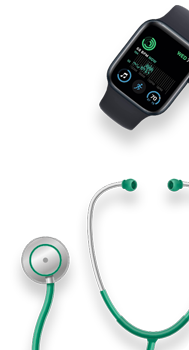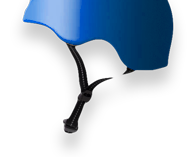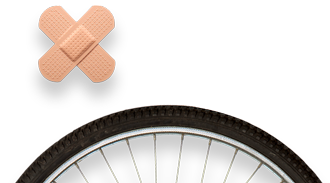What is a CT Scan?
A CT scan (CAT scan) is a test used by physicians to look at specific body organs, blood vessels, or bone. The images are obtained by using an x-ray tube with a computer. The images produced by the scan are like a loaf of bread with a series of slices.
What Can You Expect During the CT Scan?
Depending on what CT scan you are having, you may need to drink an oral contrast or receive an IV contrast during the exam. Our machine is shaped like a doughnut, not like a tube. Most exams are done within 30 minutes. You will receive a report a day or two after your exam. Nothing special has to be done after your exam is over. Driving will not be impaired.
For Your Personal Safety
- All patients 60 or above having an exam that requires the use of intravenous contrast will need laboratory tests including a BUM, Creatinine, and renal function tests.
- All diabetic patients that receive intravenous contrast and are taking Glucophage, Glucovance, Metformin, Metaglip or Avandament will receive special instructions. A patient will not be able to take these medicines for 48 hours after the exam is completed. The patient will be required to have a BUN and Creatinine drawn in the laboratory before they may resume their diabetic medications.
- All patients with allergies to iodine or seafood will have to be pre-medicated. Please call the CT Department to get a prescription. Patients with known severe allergic reactions (Anaphylaxis) will not be given the IV contrast.
Instructions for You
A CT scan may be performed at one of our diagnostic centers:
- Outpatient Diagnostic Center at Sapling Grove
- Outpatient Diagnostic Center at Johnson City
- Outpatient Diagnostic Center at MeadowView Lane
Please take notice of your appointment location on the physician’s order. The following list of advance instructions are listed according to procedure. Please locate your procedure and follow the instructions listed.
-
Virtual colonoscopy
A few days before your exam, bring your doctor’s order and come to the Radiology Department to pick up a preparation kit. Follow the 24 hour preparation instructions.
- Upon arrival in the Radiology Department on the day of your exam, you will be asked to wear a hospital gown.
- A small rubber catheter is inserted into the rectum and air is used to outline the bowel.
- The first scan is completed with you lying on your back and then a second scan is completed with you lying on your stomach.
- The procedure takes approximately 15 – 20 minutes.
- No injections are necessary for this procedure.
-
CT angiograms
- You may not eat or drink anything 6 hours prior to your exam.
- You can take medications with sips of water.
- No oral contrast is necessary.
- Exam should take about 30 minutes.
-
Cardiac scoring
- EKG leads are placed on your chest to determine when your heart is at rest.
- The scanner takes a specific set of images thru the heart.
- These images are sent to a post processing station to determine if there is any calcium in the cardiac vessels.
- No preparation is needed.
- Exam should take about 20 minutes.
-
CT brain with & without contrast
- You may not have any food or drink 6 hours prior to the test.
- You may take medications with sips of water.
- Exam takes about 25 minutes.
-
CT brain without (IV) intravenous contrast
- You may eat or drink whatever you like.
- Exam takes about 15 minutes.
-
CT abdomen & pelvis with IV & oral contrast
- Bring you doctor’s order to the Radiology Department and pick up the oral contrast a day or two before your exam.
- Laboratory work such as BUN & Creatinine may be needed if you meet the criteria. Please consult your physician for criteria.
- Refrigerating the Readi-Cat contrast prior to drinking is recommended.
- For morning appointments – Drink 1 bottle at bedtime the night before the appointment. On the day of the exam drink the second bottle 45 minutes prior to the appointment. All patients may take medications with small sips of water.
- For afternoon appointments – Patient may have a light breakfast by 6 am. Drink 1 bottle of contrast 3 hours before the appointment. Drink the second bottle one hour prior to the appointment. All patients may take medications with small sips of water.
- Exam should take about 30 minutes.
-
CT helical scan for renal stone
- You may eat or drink whatever you like prior to exam.
- Exam should take about 20 minutes.
-
CT of the chest with intravenous contrast
- You may not eat or drink anything 6 hours prior to your exam.
- You can take medications with sips of water.
- Exam should take about 25 minutes.
-
CT of chest without IV contrast or high resolution scan
- You may eat or drink whatever you like prior to the exam.
- Exam should take about 20 minutes.
-
CT of helical chest for pulmonary embolus
- You may not eat or drink anything 6 hours prior to your exam.
- You can take medications with sips of water.
- Exam should take about 25 minutes.
-
CT extremities (all are done without IV contrast)
- You may eat or drink whatever you like prior to the exam.
- Please bring or send any x-rays that have been done at the doctor’s office.
- Exam should take about 30 minutes.
-
CT maxiofacial & soft tissue of the neck with IV contrast
- You may not eat or drink anything 6 hours prior to your exam.
- You can take medications with sips of water.
- Exam should take about 25 minutes.
-
CT spines
- You may eat or drink whatever you like prior to the exam.
- Exam should take about 25 minutes.
After Your Test
You may resume all normal activities. If oral or I.V. contrast was needed for your exam you should consume an increase amount of fluids following your exam. This will assist your body in evacuating, the contrast from your system. Should you experience any discomforts from your exam; contact your ordering provider’s office or the Outpatient Diagnostic Center.
If an extravasation (leakage of solutions from the vein to the surrounding tissue during intravenous administration) should occur ice or cold compresses will be applied immediately. Acetaminophen, ibuprofen, or aspirin may be taken for discomfort. You should use hot compresses and elevate the extravasated area. If symptoms persist more than 48 hours after procedure then contact your ordering provider’s office or the Outpatient Diagnostic Center.






